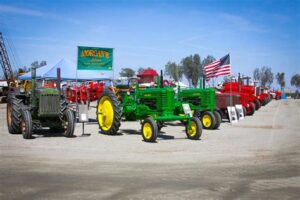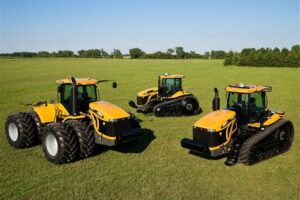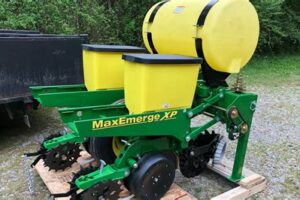Discover the latest and most efficient chicken farming equipment for your poultry business. From advanced feeding systems to automated egg collection, our top-quality equipment ensures optimal conditions for your chickens. Increase productivity and profitability with state-of-the-art technology designed to streamline operations and enhance animal welfare. Explore a wide range of innovative solutions to meet the unique needs of your chicken farm.
When it comes to chicken farming, having the right equipment can make all the difference. From efficient feeding systems to state-of-the-art ventilation solutions, investing in quality chicken farming equipment is essential for maximizing productivity and ensuring the well-being of your flock. Whether you’re a seasoned poultry farmer or just starting out, the right equipment can help streamline operations, minimize labor costs, and improve overall efficiency. In this article, we will explore some of the top-notch chicken farming equipment available in the market today, providing you with valuable insights into the tools that can revolutionize your poultry business.
Introduction
Chicken farming is a highly profitable venture, and with the right equipment, it can be made more efficient and productive. Investing in the appropriate tools and machinery is crucial for maintaining the health and well-being of your flock while maximizing your profits. This article explores the various types of chicken farming equipment available and their importance in ensuring a successful poultry operation.
Housing and Enclosure
Chicken Coop
The chicken coop is an essential structure that provides shelter, security, and comfort to your flock. It should be spacious enough to accommodate the number of chickens you intend to rear, with proper ventilation to maintain air quality. Coops also need to be predator-proof to protect your birds from potential harm.
Nesting Boxes
Nesting boxes are crucial for egg-laying hens. These compartments provide a safe and secluded place for hens to lay their eggs. They should be designed with easy access for egg collection and regular cleaning.
Feeding and Watering
Chicken Feeders
Chicken feeders are designed to hold and dispense chicken feed efficiently. They come in various sizes and styles, including trough feeders, tube feeders, and automatic feeders. Proper feeding equipment ensures that chickens have easy access to food, reducing wastage and maintaining hygiene.
Chicken Waterers
Water is a vital component of a chicken’s diet, and waterers provide a constant supply of clean and fresh water to your flock. These can be in the form of open troughs, nipple drinkers, or automatic waterers, depending on the scale of your operation and the number of birds you rear.
Brooding Equipment
Chicken Brooders
When raising chicks, brooding equipment is essential for providing a warm and controlled environment. Brooders typically consist of heat lamps or heaters, temperature regulators, and bedding materials. Keeping chicks at the right temperature during their early stages is crucial for their growth and overall health.
Health and Hygiene
Dust Baths
Chickens naturally take dust baths to keep themselves clean and free from parasites. Providing a designated dust bathing area with suitable materials such as sand, soil, or diatomaceous earth is important for their hygiene. Dust baths help control mites, lice, and other external parasites that can harm the birds.
Vaccination Equipment
Vaccinating your flock against common poultry diseases is crucial for their overall health and productivity. Vaccination equipment, such as syringes, needles, and vaccines, should be properly maintained and administered by trained personnel to ensure accurate dosages and minimize stress on the chickens.
Waste Management
Manure Removal Systems
Efficient waste management is essential to maintain a clean and healthy environment for your chickens. Manure removal systems, such as conveyor belts or automated scraping systems, help eliminate excess waste, preventing ammonia buildup and disease transmission within the flock.
Composting Systems
Composting chicken manure is an eco-friendly way to recycle waste and produce nutrient-rich organic fertilizer. Composting systems, such as bins or tumblers, allow the decomposition of manure, bedding, and other organic materials, resulting in a valuable soil amendment for your garden or crops.
Conclusion
Investing in the right chicken farming equipment is vital for the success of your poultry operation. From housing and feeding to health management and waste control, each piece of equipment plays a crucial role in maintaining the well-being and productivity of your flock. By using the appropriate tools and machinery, you can ensure that your chickens thrive while maximizing your profits in this rewarding industry.
Chicken Farming Equipment: Enhancing Efficiency and Productivity in Poultry Businesses
When it comes to chicken farming, having the right equipment is essential for enhancing efficiency and productivity in poultry businesses. With advancements in technology, poultry farmers now have access to a wide range of equipment designed to provide optimal conditions for their chickens and streamline various processes. From poultry houses to incubation systems, these tools not only create a safe and comfortable environment for the birds but also maximize nutrition, maintain hydration, regulate temperature and humidity, stimulate growth, ensure quality and efficiency, minimize environmental impact, and ensure successful hatchery operations.
Poultry Houses: Providing a Safe and Comfortable Environment for Optimal Growth
State-of-the-art poultry houses are equipped with advanced technology to create the perfect environment for chickens. These houses offer comfortable temperatures, proper ventilation, and efficient lighting systems that promote healthy growth and minimize the risk of diseases. By providing the optimal conditions necessary for higher productivity and overall well-being, poultry farmers can ensure that their chickens thrive.
Automatic Feeding Systems: Maximizing Nutrition and Minimizing Waste
Automated feeding systems have revolutionized poultry farming by ensuring that chickens receive the right amount of feed at designated times throughout the day. This not only saves time and labor but also ensures consistent nutrition, resulting in improved growth rates and higher-quality meat. These systems also help minimize feed wastage, allowing farmers to efficiently manage their resources and reduce costs.
Watering Systems: Maintaining Hydration and Preventing Disease
Efficient watering systems are crucial for maintaining the health and productivity of chickens. These systems ensure a continuous supply of clean water, thus preventing dehydration, which can lead to various health issues. Additionally, advanced watering systems reduce the risk of contamination and the spread of diseases, promoting overall flock health and reducing the need for antibiotics.
Environment Control Systems: Regulating Temperature and Humidity
Environment control systems play a vital role in maintaining optimal temperature and humidity levels inside poultry houses. By adjusting and monitoring these factors, farmers can create a comfortable and stress-free environment for their chickens. This not only improves their overall well-being but also enhances feed conversion rates and productivity, resulting in higher profit margins for the poultry business.
Lighting Systems: Stimulating Growth and Enhancing Productivity
Proper lighting is essential for the growth and development of chickens. Advanced lighting systems simulate natural daylight patterns, promoting better vision, activity levels, and overall health. By providing the ideal lighting conditions, poultry farmers can ensure improved feed consumption, enhanced weight gain, and a more efficient production cycle.
Egg Handling and Sorting Equipment: Ensuring Quality and Efficiency
Efficient egg handling and sorting equipment help farmers streamline the egg collection and processing processes. These systems eliminate the need for manual handling, reducing the risk of cracks and contamination. With automated sorting capabilities, farmers can quickly identify and remove defective eggs, ensuring only high-quality eggs make it to market.
Waste Management Systems: Minimizing Environmental Impact
Effective waste management systems help poultry farmers minimize the environmental impact of their operations. These systems involve proper disposal and treatment of animal waste, reducing the risk of groundwater contamination and odor issues. By implementing sustainable waste management practices, farmers can maintain compliance with regulations, foster a positive public image, and contribute to a cleaner environment.
Incubation Systems: Ensuring Successful Hatchery Operations
Incubation systems play a crucial role in hatchery operations, providing a controlled environment for the development of fertile eggs into healthy chicks. These advanced systems regulate temperature, humidity, and ventilation, ensuring optimal conditions for successful hatching. By utilizing incubation systems, poultry farmers can achieve higher hatch rates, reduce mortality rates, and maintain a consistent supply of chicks for their operations.
In conclusion, chicken farming equipment has significantly enhanced the efficiency and productivity of poultry businesses. From providing a safe and comfortable environment for optimal growth to maximizing nutrition, maintaining hydration, regulating temperature and humidity, stimulating growth, ensuring quality and efficiency, minimizing environmental impact, and ensuring successful hatchery operations, these tools have revolutionized the industry. By investing in the right equipment, poultry farmers can not only improve their bottom line but also contribute to the overall welfare of their chickens and the sustainability of their operations.
Chicken farming equipment is an essential aspect of modern poultry farming. With the advancement in technology, these equipment have revolutionized the way chickens are raised, providing numerous benefits to both farmers and the birds themselves. Here are several key points highlighting the importance of using professional-grade chicken farming equipment:
- Improved efficiency: Professional chicken farming equipment ensures optimal efficiency in various aspects of poultry management. From automated feeding and watering systems to climate control mechanisms, these equipment streamline and simplify daily tasks, allowing farmers to save time and effort. This enhanced efficiency translates into increased productivity and higher profits for poultry farmers.
- Enhanced bird welfare: High-quality chicken farming equipment is designed with the well-being of the birds in mind. For instance, specially designed cages and nests provide comfortable living spaces, while automatic lighting systems mimic natural daylight patterns, promoting healthier growth and better egg production. Additionally, equipment such as ventilation systems help maintain optimal air quality, reducing the risk of respiratory diseases among the flock.
- Better biosecurity: Professional chicken farming equipment plays a crucial role in maintaining biosecurity on poultry farms. By implementing advanced measures like automatic disinfection systems and strict separation between different production zones, the risk of disease transmission is significantly reduced. This helps to safeguard the overall health and bio-integrity of the flock, ultimately minimizing the potential economic losses associated with disease outbreaks.
- Cost-effective: While initial investments in professional chicken farming equipment may seem significant, they often yield substantial long-term cost savings. These equipment are built to last, requiring minimal maintenance and replacement. Moreover, their efficient design contributes to reduced energy consumption, resulting in lower utility bills. The overall cost-effectiveness of using professional-grade equipment makes them a worthwhile investment for poultry farmers.
- Increased production capacity: The use of professional chicken farming equipment allows farmers to scale up their production capacity. Automated systems for egg collection, sorting, and packaging enable faster processing, reducing bottlenecks and increasing output. Additionally, technologies like automatic feeders ensure consistent feeding schedules, promoting healthy growth and maximizing the overall production potential of the flock.
In conclusion, the utilization of professional chicken farming equipment is crucial for modern poultry farming. These equipment contribute to improved efficiency, enhanced bird welfare, better biosecurity, cost savings, and increased production capacity. By investing in such equipment, poultry farmers can ensure sustainable and profitable operations while providing optimal living conditions for their birds.
Thank you for visiting our blog on chicken farming equipment. We hope that you have found the information provided to be insightful and helpful in your journey as a poultry farmer. As professionals in the industry, we understand the importance of using the right equipment to ensure the health and productivity of your chickens. In this closing message, we would like to summarize the key points discussed throughout the article and emphasize the significance of investing in high-quality equipment.
Firstly, we discussed the importance of having a suitable housing system for your chickens. Transitioning from traditional backyard farming to more modern and efficient methods requires the use of appropriate housing equipment. By providing your chickens with a comfortable and secure environment, you can minimize stress, reduce the risk of disease outbreaks, and optimize their overall well-being. We highlighted the benefits of using well-designed chicken coops, nesting boxes, and ventilation systems to create a conducive living space for your flock.
In addition to housing, proper feeding and watering systems are crucial for the optimal growth and development of your chickens. We emphasized the significance of investing in automated feeding and watering equipment to ensure a consistent and reliable supply of food and water. These systems not only save you time and effort but also help in maintaining hygiene and preventing wastage. By using high-quality feeders and drinkers, you can provide your chickens with a balanced diet and clean water, promoting their health and productivity.
Lastly, we discussed the importance of biosecurity measures and the role of disinfection and waste management equipment. Maintaining a clean and disease-free environment is essential to prevent the spread of pathogens and ensure the overall health of your flock. We highlighted the importance of using disinfectant sprayers, waste management systems, and other cleaning equipment to maintain proper hygiene and biosecurity standards. By investing in these tools, you can significantly reduce the risk of disease outbreaks and protect the well-being of your chickens.
In conclusion, we would like to remind you of the significance of using appropriate chicken farming equipment. By investing in high-quality housing, feeding and watering systems, as well as biosecurity equipment, you can create a safe and productive environment for your chickens. We hope that this blog has provided you with valuable insights and guidance in selecting the right equipment for your poultry farm. Should you have any further questions or require additional information, please do not hesitate to reach out to us. Good luck in your chicken farming endeavors!
Video Chicken Farming Equipment
People also ask about Chicken Farming Equipment:
-
What equipment is needed for chicken farming?
- Poultry house or coop
- Feeders and waterers
- Nest boxes for egg-laying hens
- Brooders or heat lamps
- Incubators for hatching eggs
- Feeding and watering systems
- Egg collection and handling equipment
- Ventilation systems
- Lighting systems
- Waste management systems
- Health monitoring tools
-
How much does chicken farming equipment cost?
-
Where can I buy chicken farming equipment?
- Agricultural supply stores
- Online marketplaces
- Specialized poultry equipment suppliers
- Farm equipment auctions
- Local farmers or industry experts
-
Are there any specific safety measures to consider when using chicken farming equipment?
- Regular maintenance and inspection of equipment to ensure proper functioning
- Proper training for handling equipment to avoid accidents
- Using appropriate safety gear, such as gloves and goggles, when needed
- Ensuring electrical equipment meets safety standards and is installed correctly
- Implementing safety measures to prevent injuries from moving parts or machinery
-
Can chicken farming equipment be used for other poultry species?
For chicken farming, the following equipment is essential:
The cost of chicken farming equipment varies depending on the scale of your operation and the quality of the equipment. On average, you can expect to spend several thousand dollars for basic equipment for a small-scale chicken farm, while larger farms may require more substantial investments.
You can purchase chicken farming equipment from various sources. Some options include:
Yes, safety should always be a priority when using chicken farming equipment. Some important safety measures include:
Yes, some chicken farming equipment can be adapted for use with other poultry species, such as ducks, turkeys, or quails. However, it’s important to consider the specific needs of each species and make any necessary modifications to ensure their welfare and productivity.






